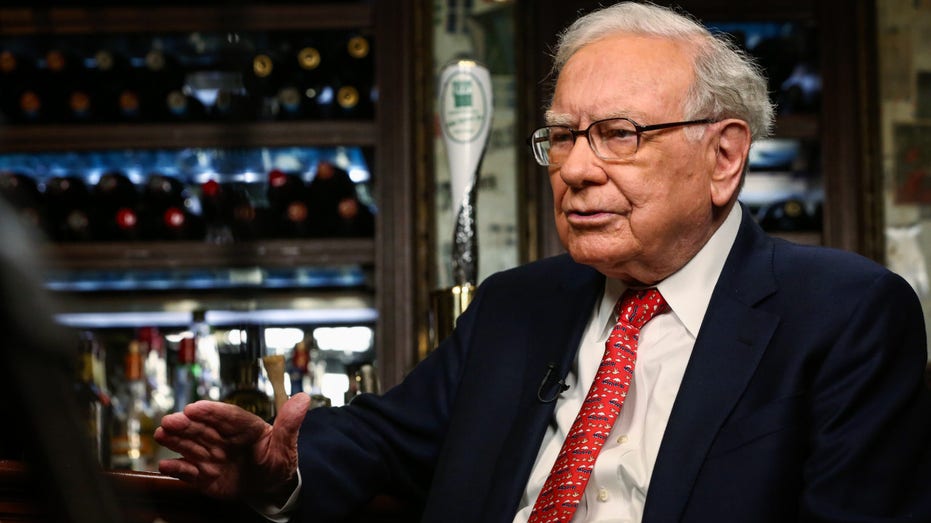Howard Buffett explains how his childhood experiences influenced him to become a philanthropist.
Most investors are running away from San Francisco’s downtown real-estate market, but Ian Jacobs is heading in. Call it a family tradition.
Jacobs is an heir of the Toronto-based Reichmann real-estate dynasty, which made a fortune buying properties in nearly bankrupt New York City during the 1970s. A bargain-seeking stock investor who once apprenticed himself to Warren Buffett, Jacobs has mostly avoided the family business—until now.
The 47-year-old spent much of the past year getting financial commitments from relatives and other wealthy families to snap up San Francisco office buildings, people familiar with the matter said. Now Jacobs has to prove wrong the prevailing wisdom that downtown offices, especially those in San Francisco, will never fill up again.
OFFICES AROUND AMERICA HIT A NEW VACANCY RECORD
“We know the Reichmanns,” said the head of a Latin American family office investing in the venture. “They are a very trusted partner.”

An aerial view of the San Francisco skyline on May 30, 2023, in San Francisco, California. ((Photo by Brandon Sloter/Getty Images) / Getty Images)
San Francisco is the epicenter of a national commercial real-estate collapse. The transition to work from home crushed demand for downtown office space. Landlords abandoned properties and defaulted on mortgages. Losses from the loans flowed through the financial system, hitting shares of banks and insurers.
This year is expected to be worse than the last for office space nationally. The situation in San Francisco is particularly challenged because its economy relied so heavily on technology companies that have now embraced remote work. Some say the city is headed for a “doom loop,” with rising vacancies prompting more companies to leave.
Jacobs has lined up commitments of $75 million for his first few deals, the people familiar with the matter said. Ultimately, he hopes to buy 3 million square feet of office space for prices about 70% below what it would cost to build the properties, according to marketing materials for the project viewed by The Wall Street Journal. Recent building sales in San Francisco averaged between $200 and $300 a square foot, implying total purchases of $600 million to $900 million.
CRIME RIDDEN SAN FRANCISCO CLEANED UP THE STREETS FOR BIDEN-XI VISIT
The plan is called “Project Uris,” a nod to the Reichmann’s 1977 purchase of eight Manhattan buildings from Uris Buildings Corp. through their company Olympia & York Developments. Like San Francisco today, New York City was struggling with crime, corporate flight and political dysfunction. Five years later, a resurgent Wall Street lifted the local economy and the buildings were valued at 10 times what the Reichmanns had paid.
The Reichmanns are an extended family of Orthodox Jews who became famous for their real-estate acumen and religious philanthropy. Jacobs’s great uncles Paul and Albert Reichmann developed Canary Wharf in London and the World Financial Center in New York. The empire grew to $10 billion by 1991, collapsed when debts bankrupted Olympia & York, then slowly recovered to at least $880 million by 2005.
Most descendants of Jacobs’s generation—he has dozens of cousins—studied in local parochial schools known as yeshivas, then began working in real estate with their families. After yeshiva, Jacobs moved to New York, where he got a job as an equity analyst at Goldman Sachs, then entered business school. There he set his mind on working for the biggest name in value investing: Warren Buffett, the head of Berkshire Hathaway.

Warren Buffett, chairman and chief executive officer of Berkshire Hathaway Inc., speaks during a Bloomberg Television interview in New York, U.S., on Wednesday, Aug. 30, 2017. (Christopher Goodney/Bloomberg via Getty Images / Getty Images)
| Ticker | Security | Last | Change | Change % |
|---|---|---|---|---|
| BRK.B | BERKSHIRE HATHAWAY INC. | 398.10 | -0.23 | -0.06% |
Berkshire Hathaway, Inc. Class B
“He wrote Warren a letter that said ‘you’re my role model and I’d like to make you a value proposition—I’ll pay you $500 a week for the opportunity to intern for you,’” said Robert Salamon, one of Jacobs’s cousins.
Buffett turned down the offer and mailed back the $500 check. But he hinted that he might find a project for Jacobs if he was ever in Omaha, Neb., where Berkshire is located. Jacobs showed up in the summer of 2002 and landed a job doing financial analysis for his idol. After Jacobs left to start his own investment firm in 2009, Tracy Britt took over the job.
Cheap stocks were plentiful after the 2009 financial crisis, but Jacobs saw fewer opportunities as low interest rates drove stock prices higher. He sometimes went years without buying anything, the people familiar with the matter said. It is a lesson he learned from Buffett, who has held back when valuations are high and swooped in during crises.
WARREN BUFFETT AND CHARLIE MUNDER’S SURPRISE NO. 1 INVESTMENT
Stock prices fell in 2022 when the Federal Reserve raised interest rates, then rebounded, prompting Jacobs to turn back to the old Reichmann playbook: buying office properties on the cheap.
Jacobs has told investors it might take San Francisco 10 years to recover, according to his marketing materials. The key to the trade will be buying cheap and holding on until technology companies ultimately return.

San Francisco is the epicenter of a national commercial real-estate collapse (iStock / iStock)
“His whole professional career has been around value investing in public markets,” said Max Raskin, an adviser to Jacobs on the project. “This is the first time he can do value investing in real estate.”
Jacobs raised commitments for his strategy from the Reichmann family and other Toronto real-estate clans. Additional funds came from U.S. and Latin American family offices.
GET FOX BUSINESS ON THE GO BY CLICKING HERE
The biggest short-term risk Jacobs has flagged to co-investors is that the window of opportunity slams shut before he can buy. Soaring interest rates chilled property sales by making mortgages costlier, but many think the Federal Reserve might cut rates this year. That could prompt fund managers and other institutional investors to return to San Francisco, they said.
Even if rates remain high, Jacobs is an outsider in San Francisco competing against wealthy locals also looking to buy buildings on the cheap. He has bid on a few properties but hasn’t completed any deals, the people familiar with the matter said.



